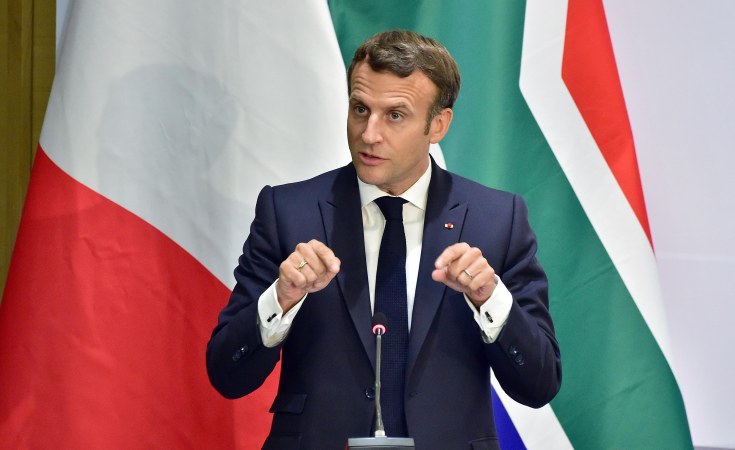Proposed by French President Emmanuel Macron at the Franco-African summit in Montpellier last year, an independent "foundation for democracy" is intended to help those working for change in the area of democratic governance. The body opened this week at the University of Witwatersrand in South Africa.
The Innovation Foundation for Democracy (FIDEMO) is intended to enable researchers, artists, business people and NGOs escape from the often stifling effects of autocratic government, and liberate the energy that is Africa's greatest natural resource.
The objectives of the foundation are to educate, inform and enable young people to reflect on democratic change in Africa, France, and Europe.
It further aims, according to a launch document issued by Wits University, to gather insights about democracy across these regions; to design and develop collective and innovative projects for democracy; and to enable an understanding of the roles that the rule of law, equality, individual and collective freedoms play in a democracy.
A list of the local projects to be financed will be announced in March, with the emphasis on putting the different actors in touch with one another, so that no one feels isolated.
The man in charge is the Senegalese philosopher Souleymane Bachir Diagne, who teaches at Columbia University in New York. He has 50 million euros to keep the democracy foundation running smoothly over the next five years.
The project is the brainchild of another African intellectual, Achille Mbembé from Cameroon. Mbembé is one of the leading contributors to the debate on post-colonialism. He teaches at Witwatersrand, and will act as part of the administrative council of the body.
Three regional branches in Africa
Apart from the headquarters at Wits, there are to be three African regional offices, the locations have not yet been revealed, and a branch in the southern French city of Marseilles.
Achille Mbembé says the crucial idea is to create a collective response, built on African needs.
Even if the majority of the initial finance is comiung from France, this is far from being another francophone gesture to former colonies.
The foundation, says Mbembé, "is panAfrican, far above the divisions inherited from the colonial period.
"It has nothing to do with ensuring the continuation of French influence in Africa, nor is it intended to reduce the current wave of anti--French feeling on the continent.
"That historical cycle has reached an end. The corpse of colonialism may still be warm, it is nontheless dead.
"Many Africans still see France as all-powerful. That is no longer true."
Stand up to the former colonial power
Achille Mbembé says only dialogue can end the deadlock. "Africans have got to stand up and face France courageously."
Marie-Yemta Moussanang, teacher at the Paris Institute of Political Science and presenter of the podcast Afrotopiques, warns against a naive belief in a transformed future.
"We are all aware of the reality of neo-colonialism," she told the press conference at the foundation's launch. "It exists.
"But we have to think beyond the questions of influence and victimisation. France and Africa are linked in so many complicated ways."


